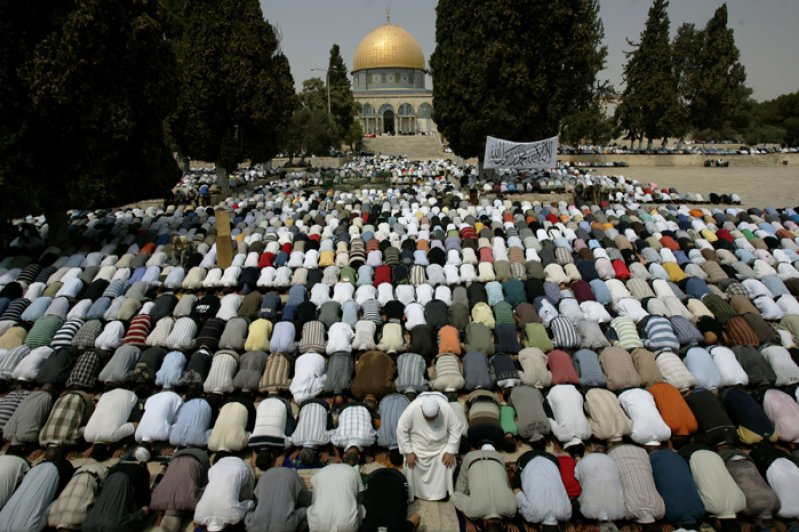
Ramadan is the ninth month of the Islamic lunar calendar, and is a time when devout Muslims abstain from food, drink, and other physical needs during the daylight hours to focus on their spiritual health. This year, Ramadan begins on Thursday, June 18 and concludes on Friday, July 17.
Ramadan, which literally means "scorching" in Arabic, was established as a Holy Month for Muslims after the Quran was revealed to the Prophet Muhammad in 610 CE on the occasion known as Laylat al-Qadr, frequently translated as "the Night of Power."
According to the Islamic Association, the Muslim god, Allaah, says in the Qur'aan what may be interpreted as, "O' you who believe, fasting is prescribed for you as it was prescribed for those before you so that you may achieve Taqwaa (righteousness, God-fearing)."
Additionally, the Muslim prophet Muhammad said, "Whoever observes the fast during the month of Ramadan, (while) believing in Allaah and seeking His rewards, will have his past sins forgiven."
Thus, during the month of Ramadan, Muslims around the world seek holiness by purifying the soul, reflecting on God, and practicing self-sacrifice. To do this, worshippers observe a ritual fast, known as Sawm, and abstain from food and water from dawn to sunset. Worshippers also avoid other material temptations and abstain from smoking and sexual intercourse during this time, as commanded by Islamic law.
Instead, Muslims use this time to pray, attend mosques, and increase their recitation and study of the Qur'an. Many communities divide the Quran into daily reading segments that conclude at the end of Ramadan.
Before sunrise during the month of Ramadan, Muslims have the Suhur or predawn meal. Then, at sunset, families and friends gather for Iftar, or the meal eaten by Muslims to break the fast. Many Muslims begin the meal by eating dates as the Prophet Muhammad is thought to have done.
The conclusion of Ramadan is marked with a lavish celebration known as Id al-Fitr (or Eid al-Fitr), the Feast of Fast-Breaking. It starts the day after Ramadan ends and lasts for three days. Id al-Fitr includes special prayers and meals with friends and relatives, and gift are often exchanged.
While there are many acts that will invalidate the fast, such as intentional eating, sexual intercourse, vomiting, and menstrual or childbirth bleeding, there are some actions that are permissible to do while fasting. Such actions include showering, rinsing the mouth and nose, breathing in different scents, drawing blood, applying eyedrops, and kissing one's spouse.
Islam is the world's second largest religion, after Christianity, with more than 1 billion followers. There are an estimated 7 million Muslims in America, along with Islamic mosques in all 50 states.






